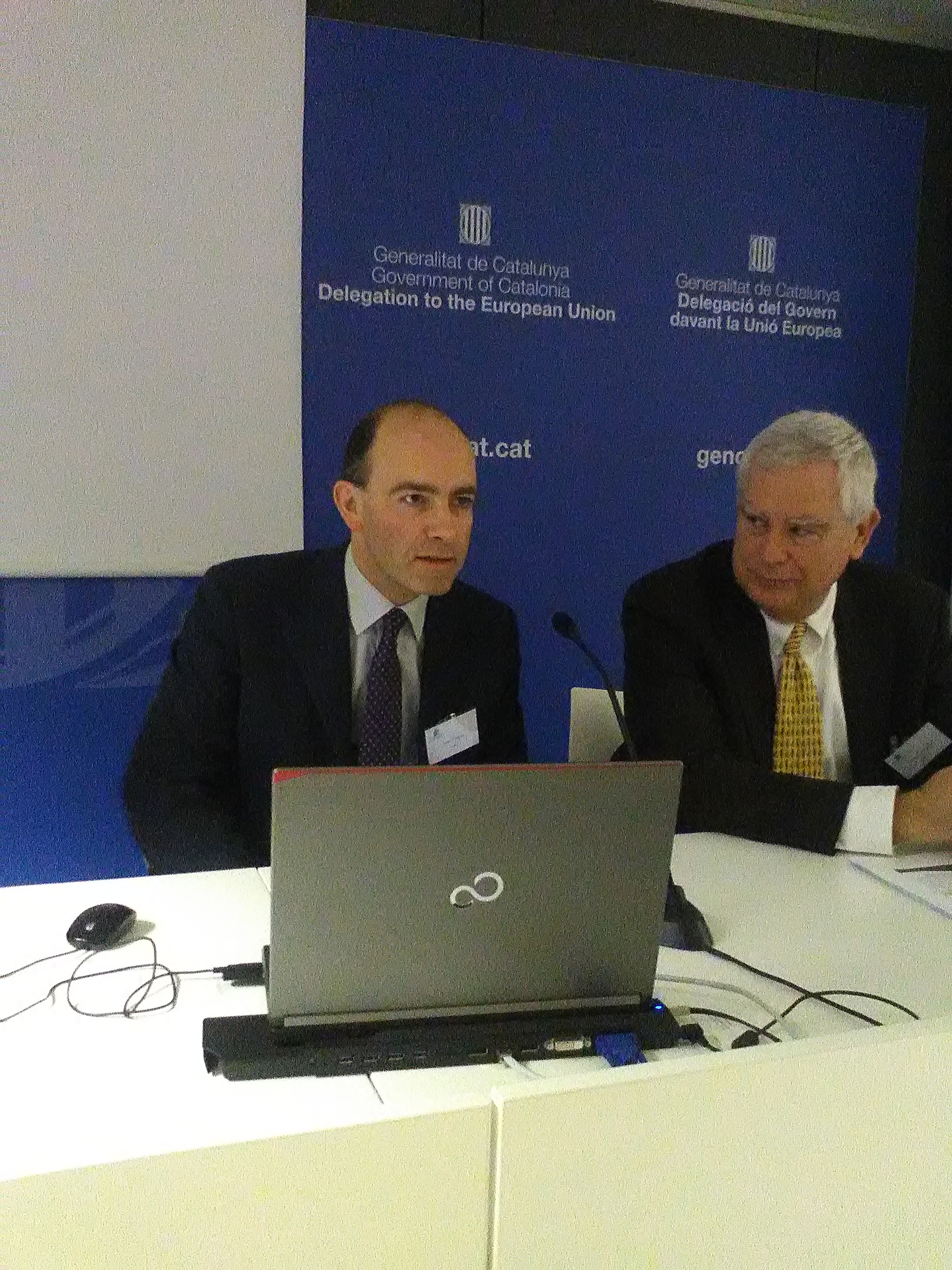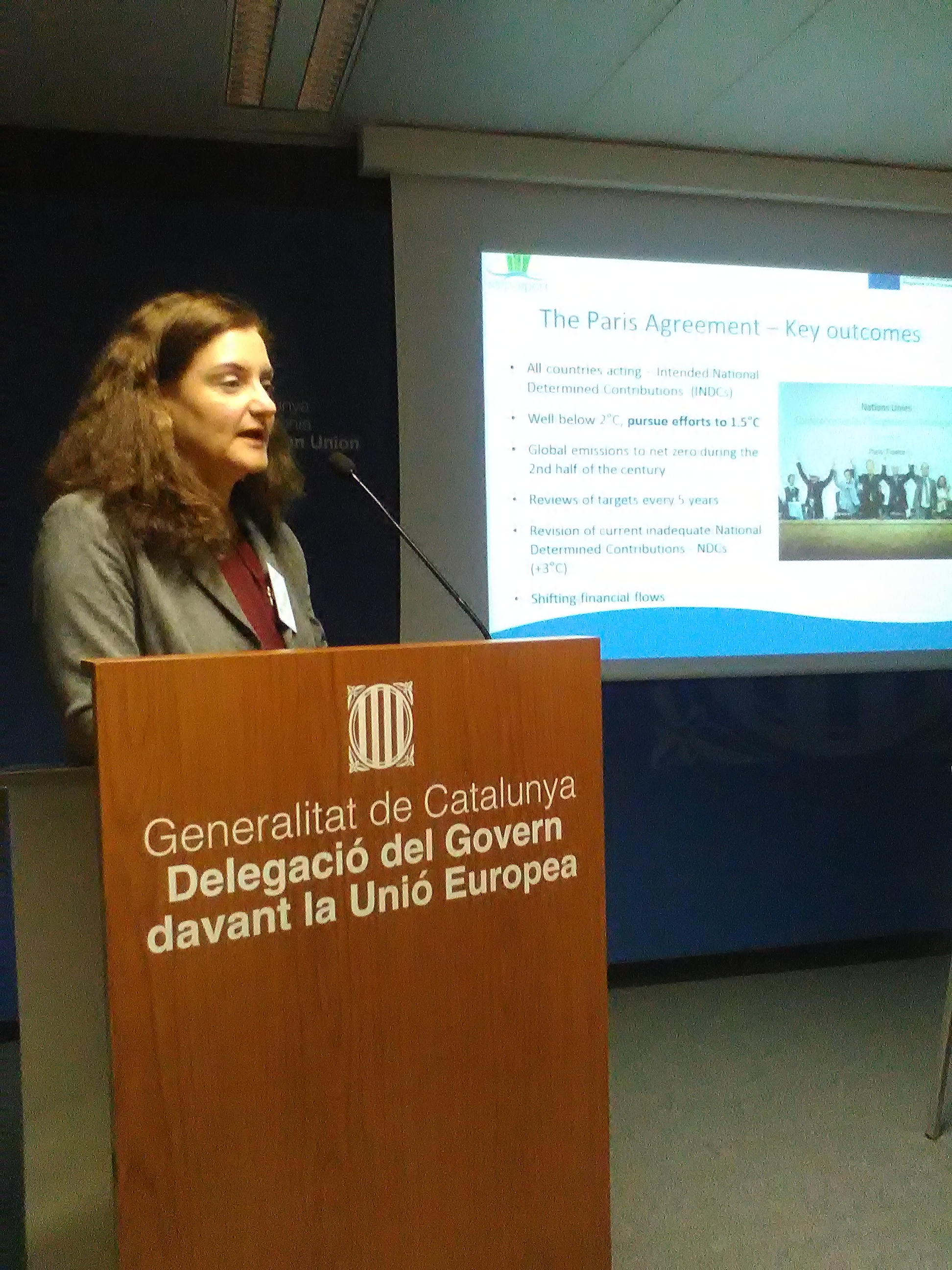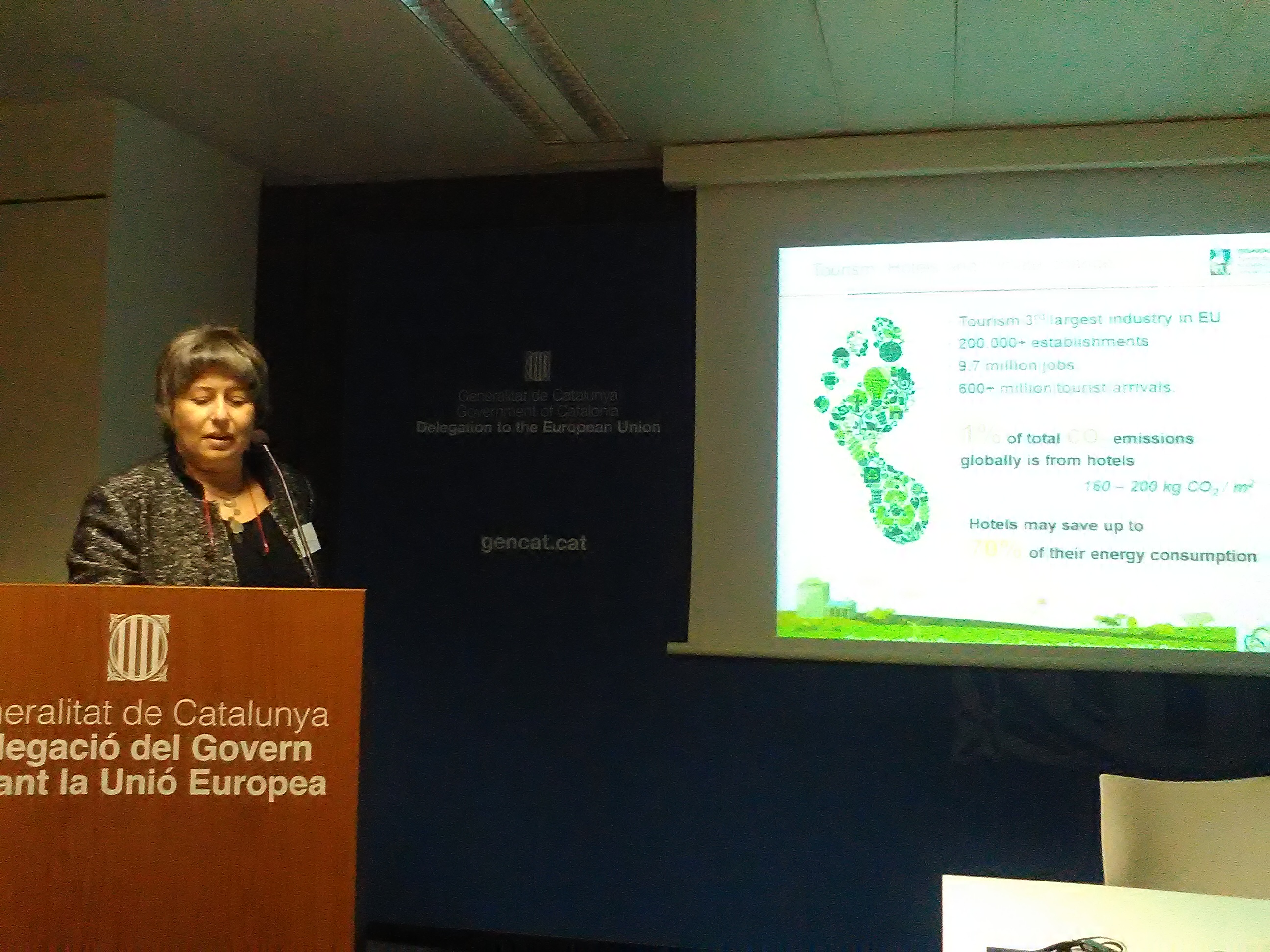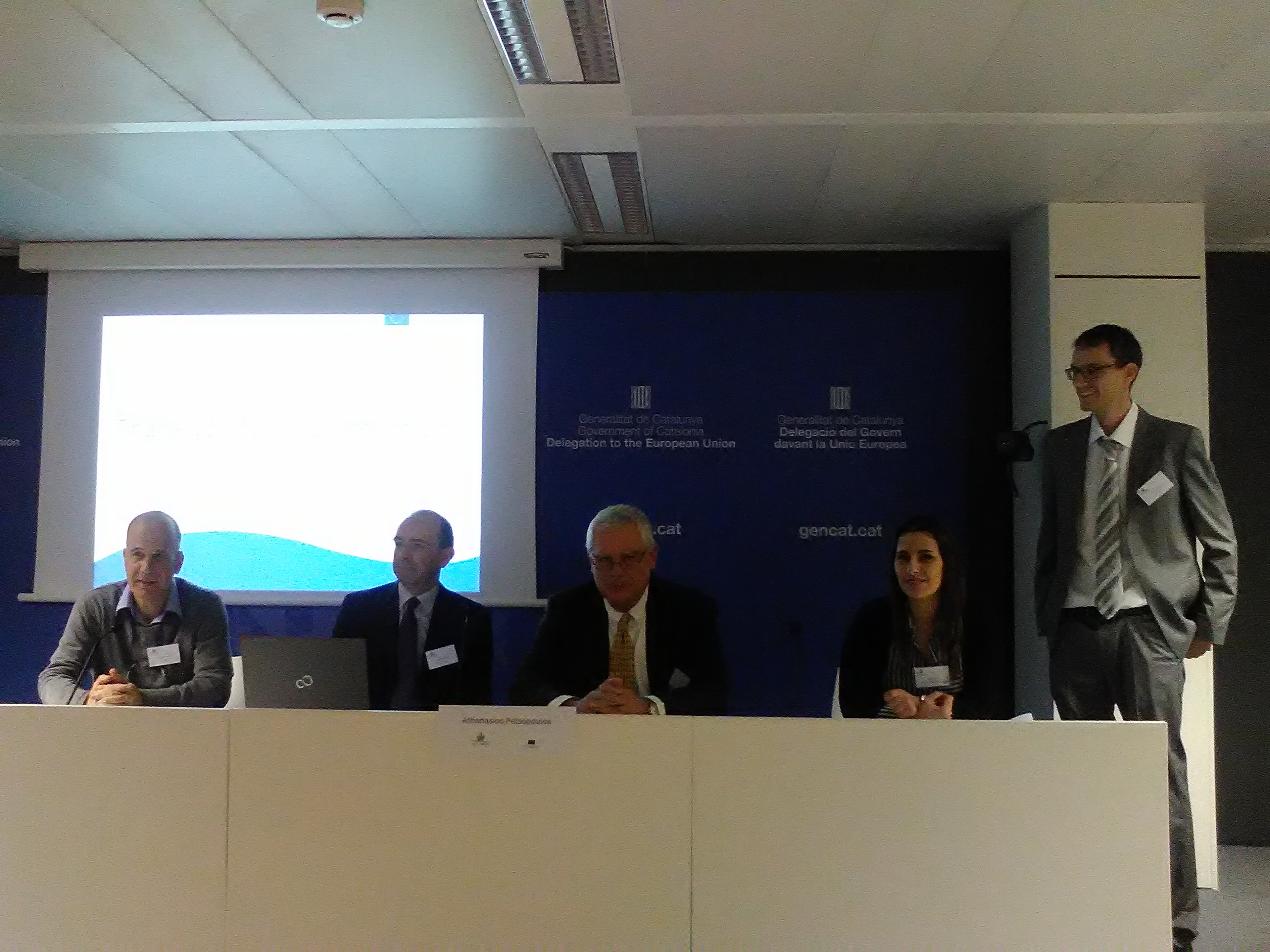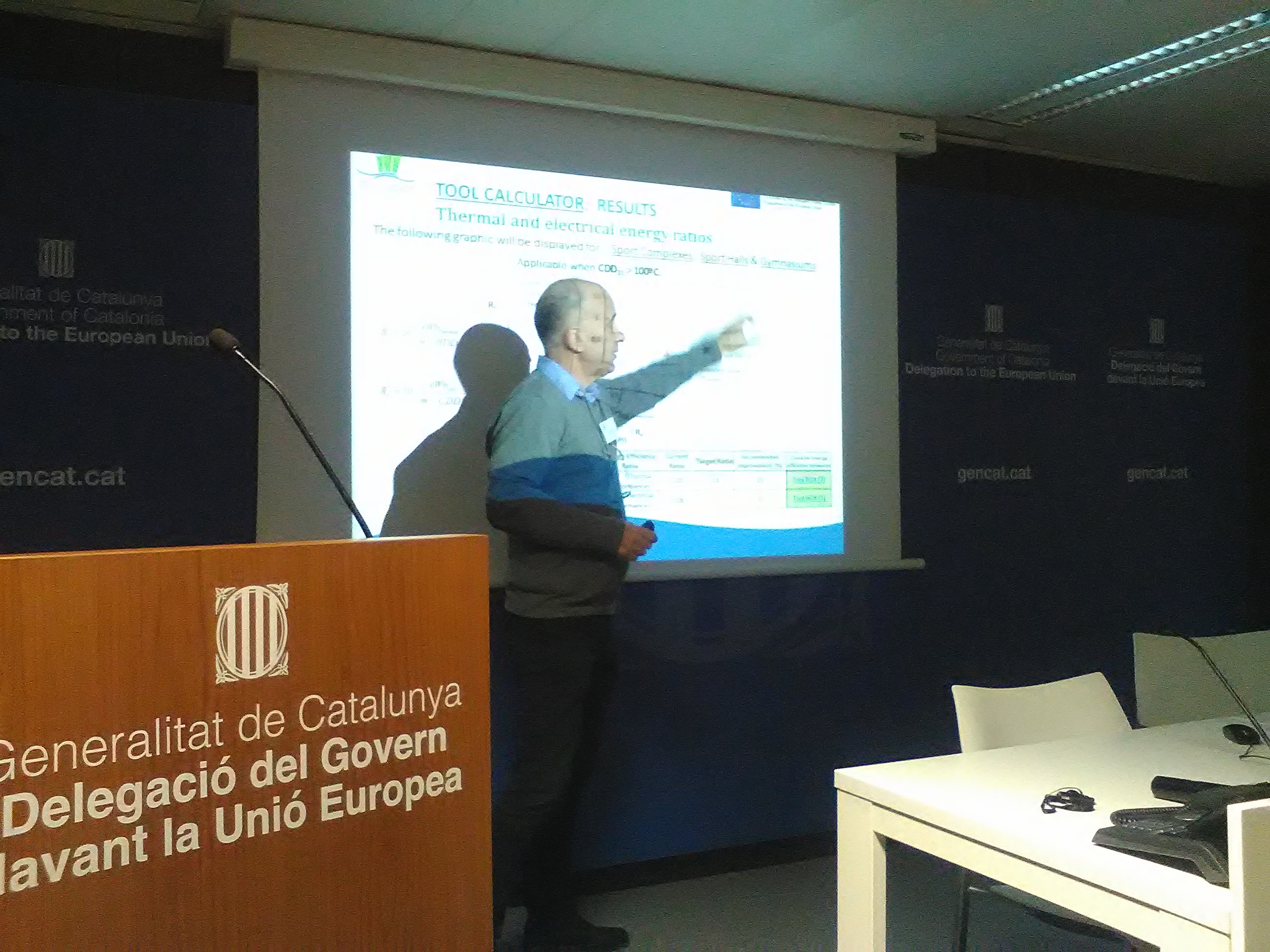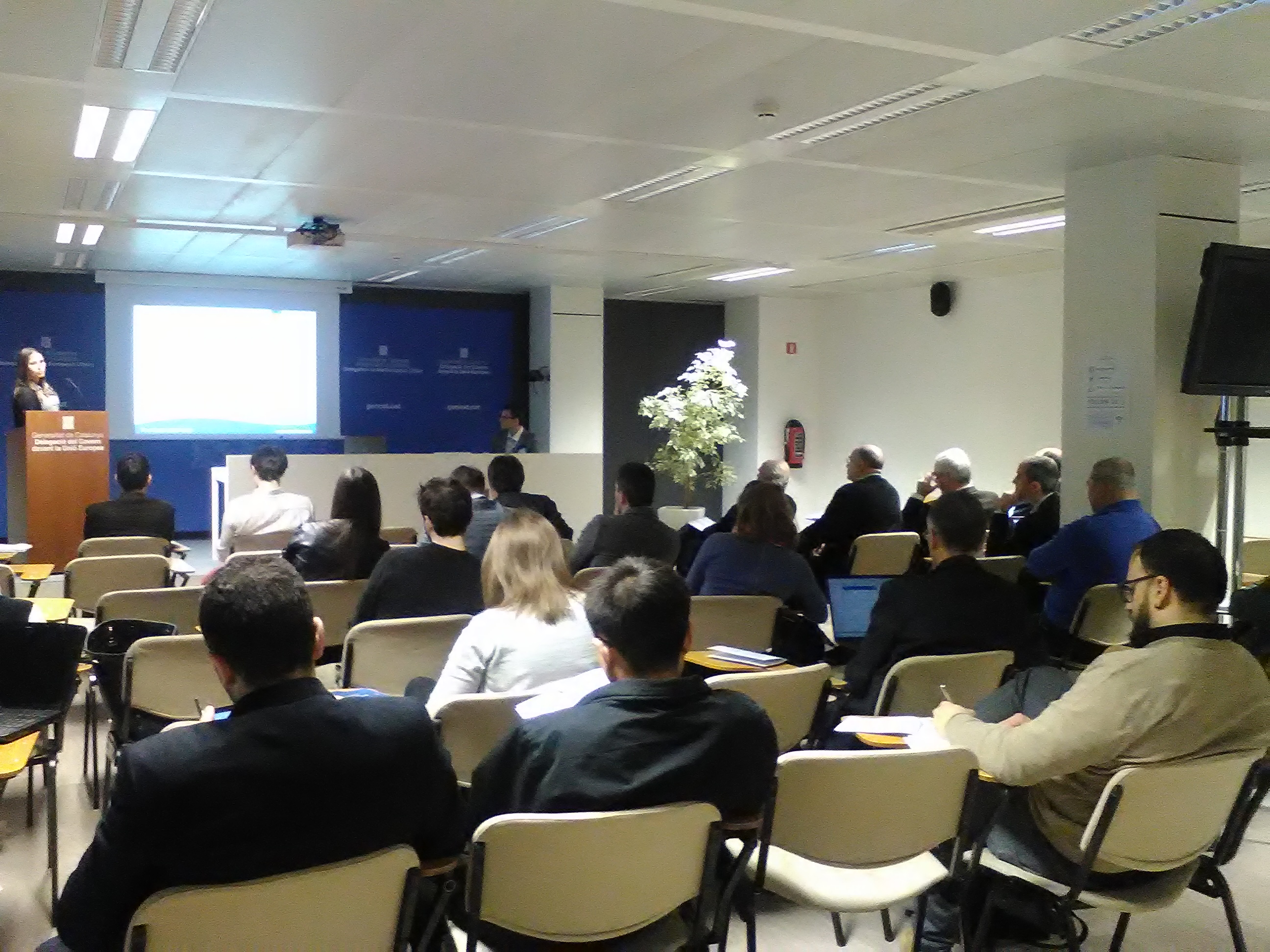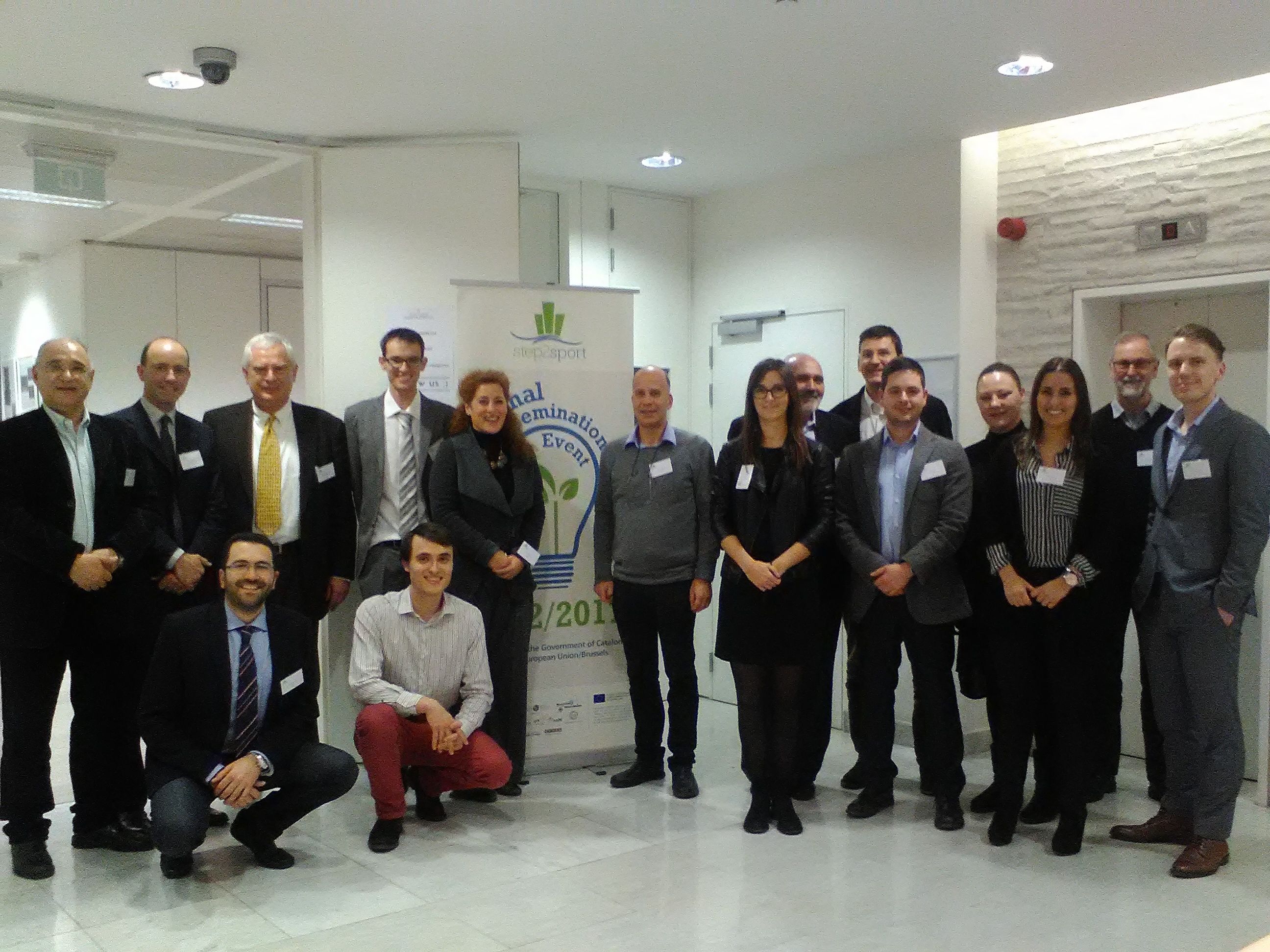Final event of STEP-2-SPORT: Reducing the energy consumption of sports buildings
 The Final Dissemination Event of STEP-2-SPORT project took place on 21st February 2017 in Brussels at the Delegation of the Government of Catalonia to the European Union. It was an open public event with the objective to disseminate the STEP-2-SPORT results to a wide variety of stakeholders: sport associations, EU associations, construction sector and experts in the sustainability field.
The Final Dissemination Event of STEP-2-SPORT project took place on 21st February 2017 in Brussels at the Delegation of the Government of Catalonia to the European Union. It was an open public event with the objective to disseminate the STEP-2-SPORT results to a wide variety of stakeholders: sport associations, EU associations, construction sector and experts in the sustainability field.
The welcome speech was delivered by Mr. Amadeu Altafaj i Tardio, Representative of Government of Catalonia to the EU. It was followed by the presentation of Mr. Philippe Moseley, Project Advisor of the Executive Agency for Small and Medium-sized Enterprises (EASME), who presented the Commission’s “Clean Energy for All Europeans†proposals as well as the Horizon 2020 Budget and topics for developing energy efficiency projects. In 2017 there are 700 million EUR for Secure, Clean and Efficient Energy, of which 104 million EUR for energy efficiency. Mr. Alex Rivera, the Manager of INDESCAT (Catalan Sports Clusters), talked about the role of the Cluster and the different initiatives conducted by the Cluster at a regional level to promote the energy reduction in sports facilities.
Afterwards, the main results achieved in STEP-2-SPORT project were presented by the partnership:
- Neuza Rosa from JesusFerreira Consultores-energyconsulting presented the Roadmap elaborated in the framework of the project to support the energy renovation process for achieving Nearly Zero Energy Sport Buildings.
- Josep Mª Granollers from ICAEN presented the benchmarking tool, an online platform that enables sport owners and sport facility managers to assess their current energy performance and determine their energy improvement potential.
- Athanasios Petsopoulos from SPEED Development Consultant, SA informed about the lessons learnt and policy recommendations extracted from the project, highlighting that additional energy policies and appropriate financial mechanisms are needed to achieve the necessary depth of deep energy renovation in sport buildings.
- Marcin Dluzewski from the Polish National Energy Conservation Agency (KAPE) presented the deep energy renovation project that will be conducted in Stalowa Wola sport complex during 2017.
- Marc Torrentellé from LEITAT Technological Center presented the package of energy improvement measures that were implemented in 4 Catalan sport buildings as well as the savings achieved.
Besides showcasing the main results achieved during the lifetime of the STEP-2-SPORT project, additional speakers were invited to enrich the discussion. The results achieved in a similar NZEB project, but this one focused on the field of hotels, was presented by Ms. Stavroula Tournaki (Technical University of Crete).  Mr. Lieven Vanstraelen from Energinvest talked about the role of ESCOs and facilitators in Energy Performance Contracting (EPC) projects, and presented two successful EPC projects implemented in sport buildings: 1) CAR Sant Cugat (Spain) and ASVÖ Gymnasium Graz (Austria). The last presentation was made by Ms. Theodora Petroula from the Climate Action Network-Europe, who highlighted that there is a high potential to reduce CO2 emissions in the building sector.
The Final Dissemination Event of STEP-2-SPORT project allowed stakeholders to debate and share views on the perspectives of NZEB and energy efficiency in sport buildings.
Below the list of presentations made during the event:
- EU support for Energy-efficient buildings – EASME
- Sport sector and its impact on energy consumption – INDESCAT
- General overview of STEP-2-SPORT – LEITAT
- Roadmap towards NZE Sports buildings – JesusFerreira Consultores
- Benchmarking tool for sports facilities – ICAEN
- Lessons learnt and policy recommendations – SPEED Development consultants
- Energy renovation project in Stalowa – KAPE
- Savings achieved in Catalan sports buildings – LEITAT
- Presentation of neZEH project – TUC
- Point of view of the European ESCO sector – Energinvest
- Impact of the building sector in global emissions – Climate Action Network
